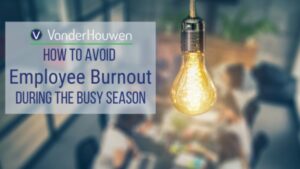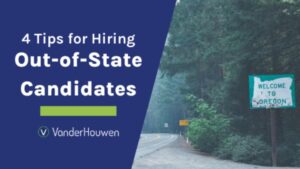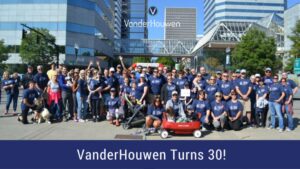Job Hunting Tips for New Grads
Whether you’ve graduated with your first degree or have gone back for a second (or third!), entering the job market can feel overwhelming at first. There’s a lot going on between applications, interviews and thank you notes, and learning how to job search and successfully interview can help alleviate some of the stress. Here are our best tips to starting your post-graduation job search:
You may find that the job you were excited about is full of daily tasks that don't excite you. You could find that one industry is more inspiring to you over another. Take the time to do your due diligence in determining what path will suit you most.
If you are thinking about relocating after graduation, pick your top 2-3 desired locations. Hiring managers want to see that you have roots of some kind before moving, not just that you want out of your current locale. If you’ve never visited, how can you be sure you’ll enjoy living there? Take a scouting trip to decide if that new city is really where you want to start your adventure.
If you know someone who works in your desired field, ask if you can shadow or assist them. It could be watching as they run through their daily process or helping with filing/small projects on your off time. Either way, you still get practical, useful knowledge without a major time commitment and hiring managers will be much more likely to invite you in for an interview if they see that experience on your resume.
Do you fidget or play with your jewelry? What about tapping your foot constantly or biting your lip? How many times do you say “um” while answering an interview question? Practicing will give you a chance to discover and quell those nervous habits and hone your interviewing skills before you step into the job market.
Reach out to a current employee (or someone who recently left) on LinkedIn and ask them about their experience. What did they like, what would they have changed, etc.? After your company research and a thorough review of the job description you are interview for, write out questions or important talking points you’d like to discuss with the hiring manager. Job interviews are a two-way street and this is your chance to interview the company -- be confident and ask about the things that matter most to you.
Get Specific
Being open for anything may seem like a good job searching technique, but as a new grad, it doesn’t show hiring managers that you are specifically interested in their company or the role you are applying for. Be clear about where you want your life to go and what you’re looking for in a job. Research the career path you want to take, the position you’re hoping to start with and the steps required to get there. Schedule informational interviews with people in the role or industry you want to discuss their job progression, how they got there, and what their day-to-day responsibilities look like.You may find that the job you were excited about is full of daily tasks that don't excite you. You could find that one industry is more inspiring to you over another. Take the time to do your due diligence in determining what path will suit you most.
If you are thinking about relocating after graduation, pick your top 2-3 desired locations. Hiring managers want to see that you have roots of some kind before moving, not just that you want out of your current locale. If you’ve never visited, how can you be sure you’ll enjoy living there? Take a scouting trip to decide if that new city is really where you want to start your adventure.
RELATED: 6 Steps to Relocating to a New City
Get Experience Before You Graduate
Your degree gives you the fundamental knowledge of a subject, but what you really need is experience to put you ahead of your peers. Did you complete an internship? If you don't have time for an internship before graduating, can you squeeze in a few hours during your week to volunteer at a non-profit? Going for whatever time you can spare will still give you the on-the-job experience hiring managers are looking for without jeopardizing a packed schedule.If you know someone who works in your desired field, ask if you can shadow or assist them. It could be watching as they run through their daily process or helping with filing/small projects on your off time. Either way, you still get practical, useful knowledge without a major time commitment and hiring managers will be much more likely to invite you in for an interview if they see that experience on your resume.
Use Campus Resources
Most colleges have a career center with information and resources to help you find a job after graduation. A lot of them even have graduation prep classes! They’re usually only a credit or two, and they go over the basics of preparing your resume and cover letter, building a LinkedIn profile, networking, applying for jobs, etc. Some classes even have mock interviews so you can practice common questions, learn how to dress professionally, and get feedback on how to improve.Do you fidget or play with your jewelry? What about tapping your foot constantly or biting your lip? How many times do you say “um” while answering an interview question? Practicing will give you a chance to discover and quell those nervous habits and hone your interviewing skills before you step into the job market.
Be Honest On Your Resume
Don’t lie on your resume. This goes for everything from the classes you took in college to where you're located. If you aren't local, be honest. If you don't have any relevant job experience, be honest. If you only have coursework vs a completed degree, be honest. You don’t want any to give the hiring manager any surprises once you’ve been offered the job. Whether it comes out in the interview or down the road, lying could damage your reputation. Avoid ruining a great opportunity (and your credibility) by being clear about what you've done from the beginning.RELATED: Don’t Forget This Resume Essential
Do a Social Media Audit
In the age of social media, your opinions are not private (unless you want them to be). Google yourself and see what comes up! If there are things you’d rather keep to yourself, change your privacy settings on that channel so no one outside of your accepted friends can see what you’ve posted. Some sites like Facebook have settings that allow friends of friends to see your posts, so be aware of what you're using. While you're making these updates, take some time to work on your personal branding. Make all your profile pictures, names and bios the same on all the public platforms you use. This way you’ll be easily recognizable when the hiring managers search for you on social media.Dress professionally
We’ve all heard “dress for the job you want”, but what does that mean in a practical sense? For some companies, it could mean a full suit, for others, it could mean slacks and a shirt. Your best bet is to err on the side of caution: a button-up shirt/blouse and slacks is never a bad thing to wear to an interview. It’s better to be conservative for an interview, you want people to focus on you and your skill set, not your outfit, hair, or accessories. If you aren’t sure what that is, ask the hiring manager or recruiter before your interview!Do Your Research
Once you’ve got an interview, it’s time for some serious research. Look for the company’s mission statement and reflect on how aligns with your values. Google recent articles involving the company or their subsidiaries. Look at their press and social media accounts for the last year and see what they've been in the news for. They could have just announced a new product, awesome employee benefits, or a merger with a large corporation. If there's no news, that's not a bad thing! It just means you'll need to dig around other avenues to gather information.Reach out to a current employee (or someone who recently left) on LinkedIn and ask them about their experience. What did they like, what would they have changed, etc.? After your company research and a thorough review of the job description you are interview for, write out questions or important talking points you’d like to discuss with the hiring manager. Job interviews are a two-way street and this is your chance to interview the company -- be confident and ask about the things that matter most to you.
New to interviewing? Learn the best ways to answer “tell me about yourself” and other difficult open-ended questions in your next job interview.































































































































